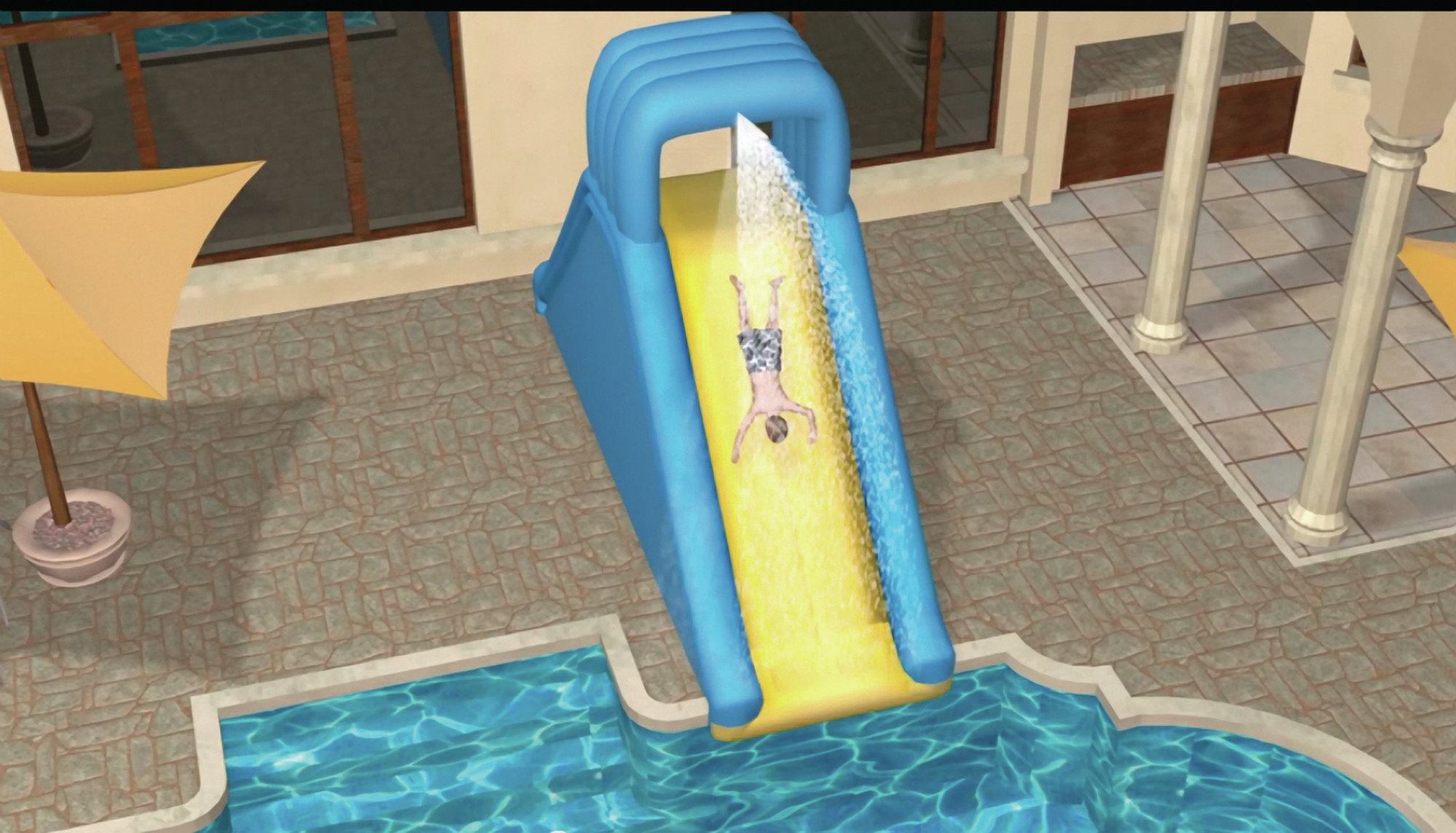Massachusetts’ highest court has affirmed a $20.6 million award for the husband of a woman killed in an inflatable pool slide failure.
“In a case like this, the feelings are hard to describe,” said the plaintiff’s attorney, Benjamin R. Zimmermann, a principal in Boston-based Sugarman and Sugarman. “They’re obviously pleased that they got some recognition for the harm that was done to them and the misconduct that caused that harm. At the same time, they still wake up every morning and Robin’s not here, and that will always be true.”
In July 2006, 29-year-old Robin Aleo slid head first down a Banzai Falls Pool Slide at a relative’s home. As she approached the bottom, the slide collapsed, causing her head to strike the concrete coping through the fabric of the inflatable slide, according to court documents.
Aleo’s upper two cervical vertebrae were broken, and doctors said she would never again move or breathe on her own. Aleo remained unconscious, except for an approximately three-second period when she woke up and said she couldn’t feel anything. The following day her family took her off life support, observing wishes she had stated previously in case such an incidence should occur. Aleo left behind a 15-month-old daughter.
In 2008, the victim’s husband, Michael Aleo, filed suit against Toys “R” Us, Amazon.com and SLB Toys USA Inc., which had a vaguely defined relationship with the slide manufacturer. The suit charged negligence, breach of implied warranty, wrongful death and violation of Massachusetts’ Consumer Protection Law.
Amazon and SLB Toys settled the case, leaving Toys “R” Us. The jury awarded Aleo a total of $20.6 million in damages — $2.6 million in compensatory and $18 million in punitive.
Toys “R” Us appealed and, because of the award’s size, the case was accepted by the Massachusetts Supreme Court.
The retailer argued that the punitive damages were excessive to the point of being illegal and that certain pieces of evidence should have been allowed in the lower-court trial. Some parties, for instance, had said Robin Aleo dove off the slide, but the high court said the comments were not substantiated well enough.
Toys “R” Us also argued that there was insufficient evidence the retailer was negligent and breached the implied warranty. Federal water slide regulation states that the product should be able to support up to 350 pounds and that it be tested for head-first sliding. The manufacturer warned in its literature and labeling that it could only support 200 pounds and stated that head-first diving could be hazardous.
Toys “R” Us said it was not negligent, but that it took reasonable care by seeking assurances from the slide vendor. According to the retailer, the vendor said the product was code-compliant and had undergone testing from an independent lab.
According to court documents, the lab provided certification that the slide had been tested for things such as lead content, flammability and mechanical hazards. However, there was no written proof that either Toys “R” Us or the vendor directed the lab to verify the product’s compliance with the federal regulation until after the product was already being imported, the high court said. And there was no documentation from the lab indicating that the Banzai Falls complied with the federal water slide codes.
Considering these and other factors, the higher court said the jury was reasonable in deciding that Toys “R” Us was negligent and breached its implied warranty.
The Supreme Judicial Court also ruled that the high punitive-damages award adhered to state law because of the harm inflicted and the “degree of reprehensibility” of the defendant’s behavior.
Zimmerman said he hopes the decision encourages companies that import the products they sell to take responsibility for ensuring safety, rather than leaving it to the vendor. “Federal statute puts a great responsibility on importers to make sure all applicable testing is done and the product meets or exceeds all [regulations],” he said. “There are so many products coming into this country that we really count on importers like Toys ‘R’ Us to do their jobs correctly. Toys ‘R’ Us had a distinct duty under the law to make sure that the testing was done, and you can’t just say ‘I relied on so and so overseas.’ ”
Toys “R” Us’ attorney could not be reached for comment.




